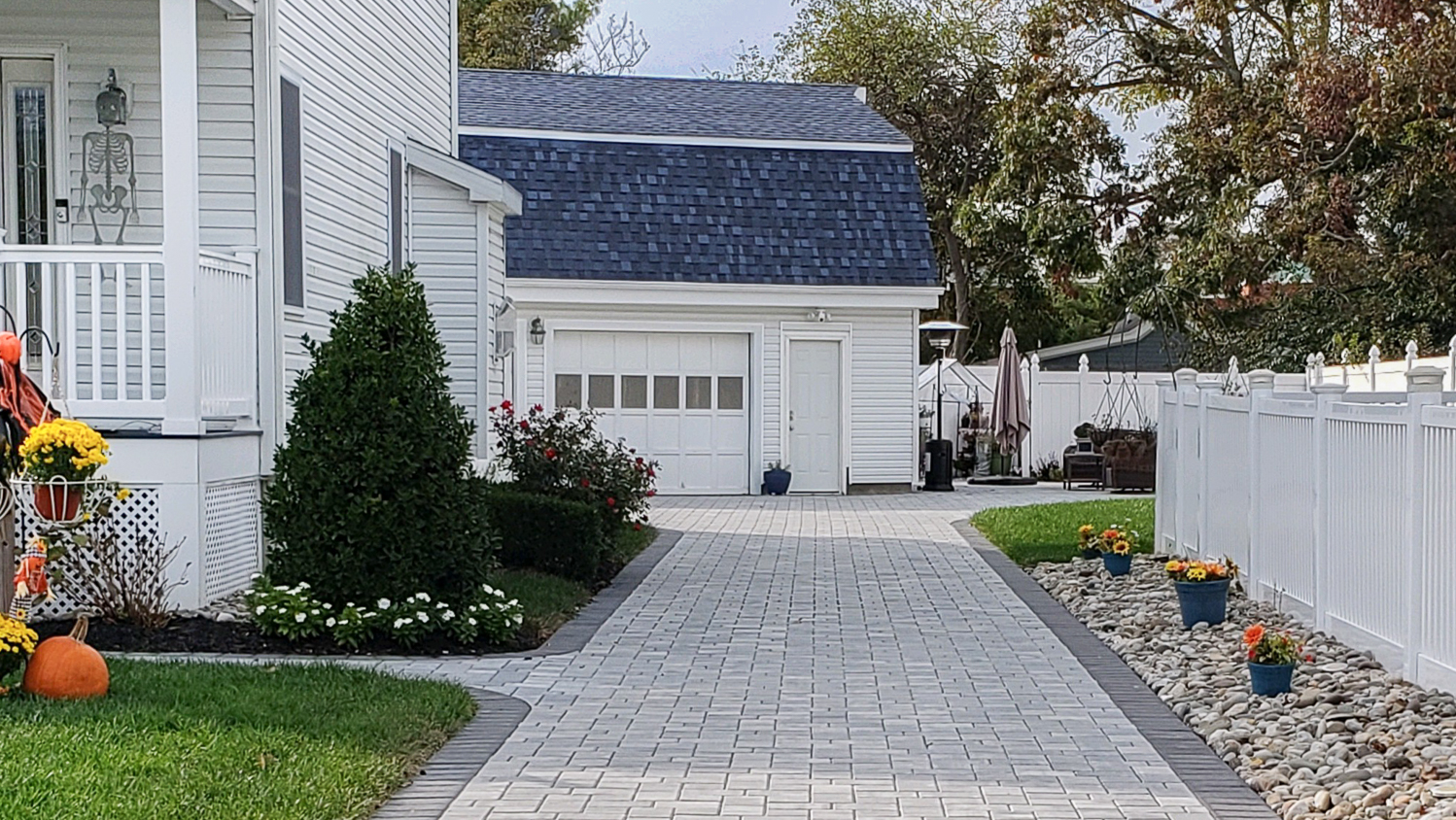
Discover the average paver driveway cost, including price ranges, key cost factors, and tips to help you budget for your driveway project.
Let these permeable driveway material options sink in


Permeable paving materials help create sustainable landscapes.
Concrete, pavers, and asphalt can be pervious pavement.
Permeable driveways need a six- to 18-inch stone base.
A permeable paver driveway costs $10 to $70 per square foot.
Permeable concrete driveways cost $6 to $15 per square foot.
Whether you’re looking for an eco-friendly material or you just want something different from the usual concrete or asphalt driveway, permeable driveway options have come a long way since the turn of the century. Permeable driveway materials come in a variety of functions and aesthetics wide enough to suit just about any pavement need and preference. The goal of a permeable driveway, of course, is to allow rainwater to go through the paving material and re-enter the water cycle while also looking stylish. Let’s take a look at the best materials available.
According to the USGS, permeable pavements provide several potential hydrologic benefits, such as reducing runoff and releasing precipitation back into the ground. To this end, one of the most important parts of how permeable driveway materials work is that the base material under the pavement allows for adequate drainage. This means excavating the driveway area and placing and compacting the crushed-stone base. Depending on several factors, such as the type of paving material, soil composition, and water table, a permeable paving system should be installed on anywhere from six inches to 18 inches of stone base material.
The best base material to use for any permeable driveway ideas is an angular crushed stone that has no fines (the small, sand-sized grains). Fines will settle and compact into a layer that slows water drainage. Deeper base material can handle more water and helps keep the driveway stable against sunken areas from settling or drive patterns.
Although the idea of permeable pavement is to allow rainwater to filter down and recharge groundwater, a drainage system may still be necessary, depending on the amount of water that tends to gather in your driveway area. The rainwater will eventually be absorbed into the subgrade, but it takes time and may not be able to keep up if your driveway area gathers a lot of water. You certainly don’t want to find out during the first rain that you should have installed supplemental drainage as your garage or house floods. If you’re going to use the best driveway materials, it’s worth getting the foundation right.

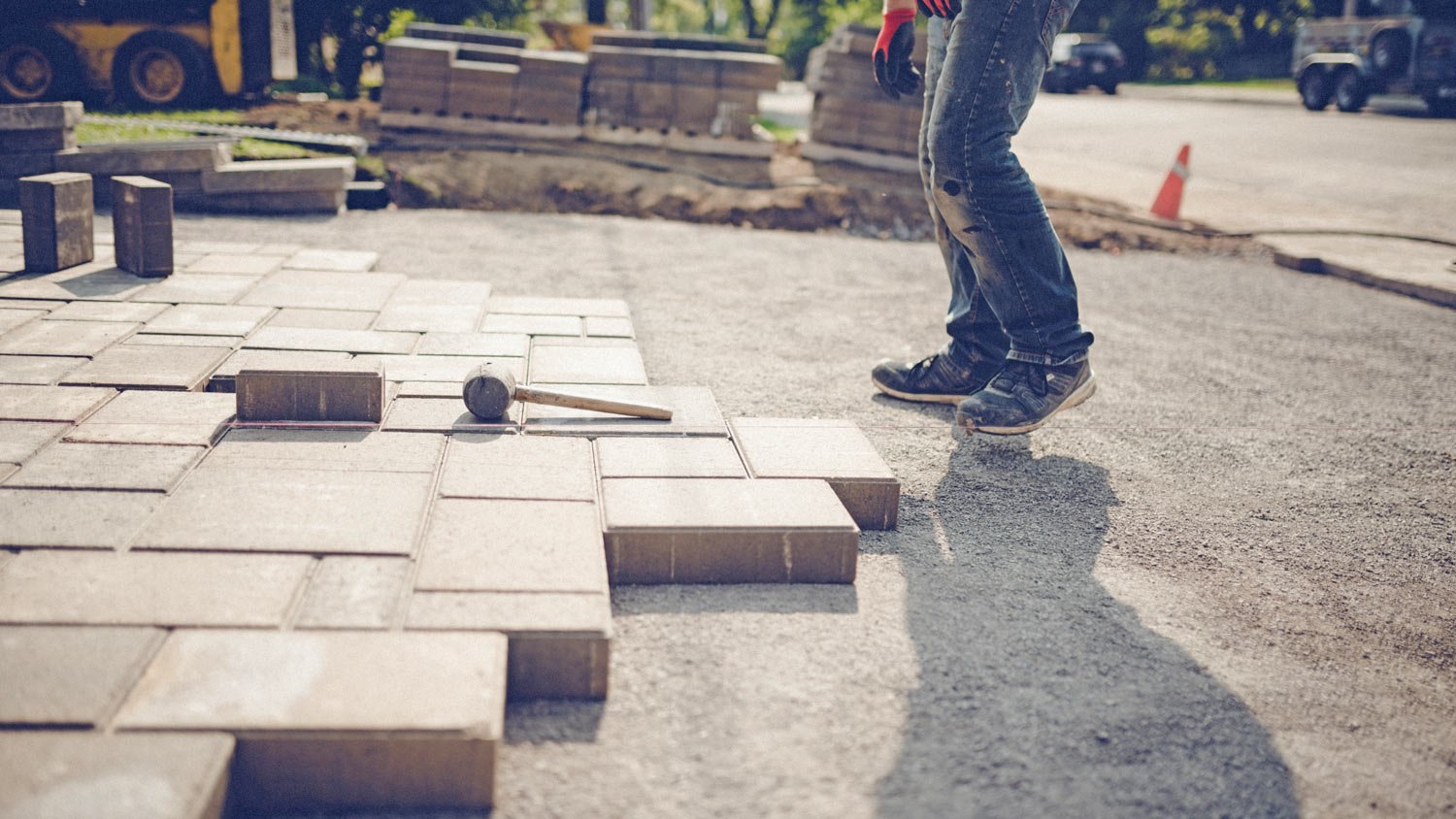
Although concrete pavers are most often used as a standard pavement type, the joints can be filled with a coarse stone that still allows water to easily pass through. Standard concrete pavers can also be laid in a pattern that leaves gaps for stone or grass that allow water to filter down into the stone base. On average, concrete pavers cost between $10 and $70 per square foot with the traditional base preparation. Installing the necessary gravel base for proper drainage will increase the cost.
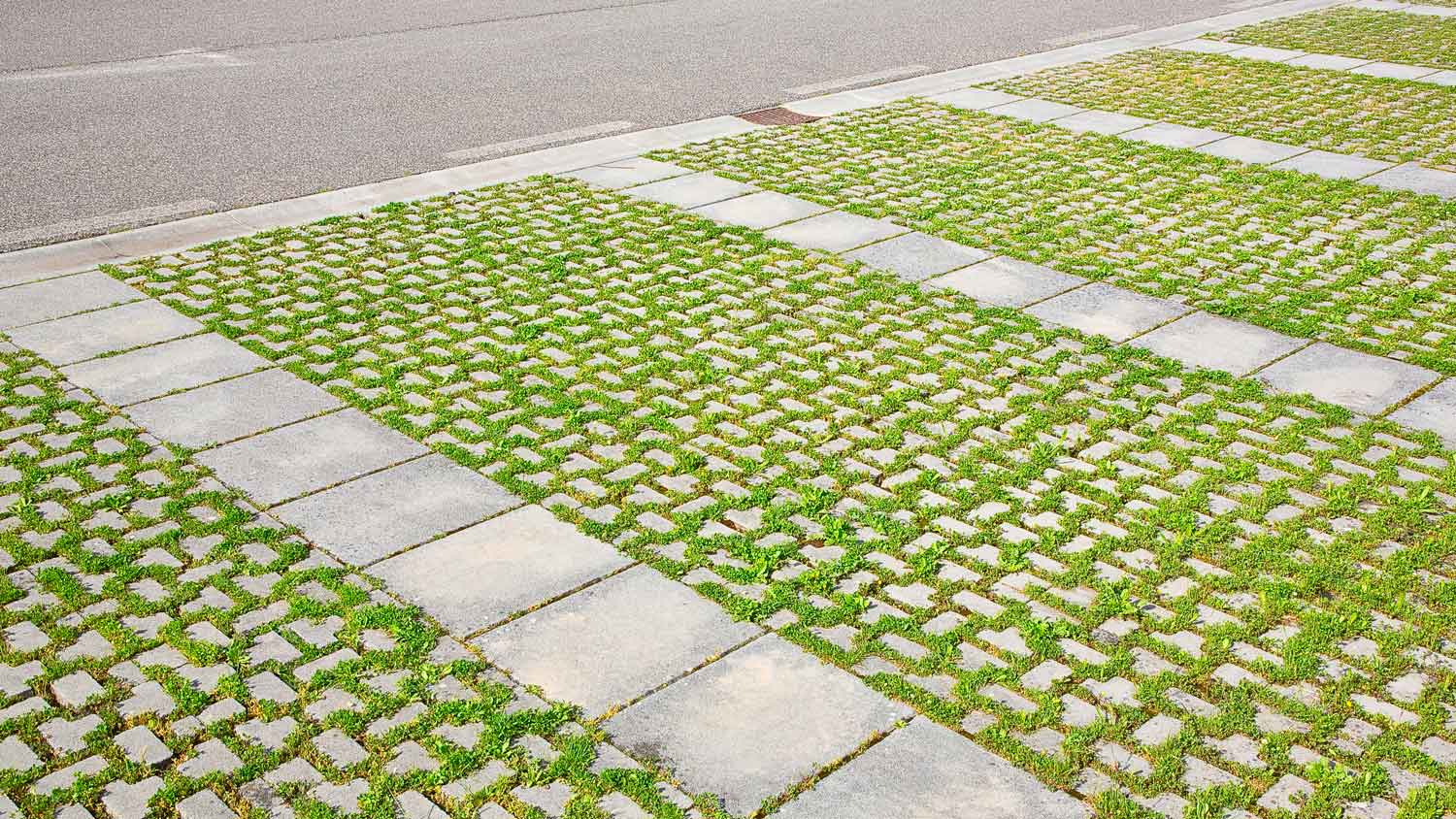
Permeable pavers are designed with wider joints between bricks to allow water to pass between them and filter into the stone base below. You can place coarse stone fill, grass, or leave the joints open according to your taste and your needs. Permeable or pervious pavers cost from $10 to $40 per square foot.
Standard concrete and asphalt are definitely impervious to water. However, a permeable concrete or recycled asphalt driveway can be poured using a special mix designed to allow water to filter through it. Pervious concrete and permeable asphalt driveways typically cost between $6 and $15 per square foot, a little higher than a standard concrete or asphalt driveway.
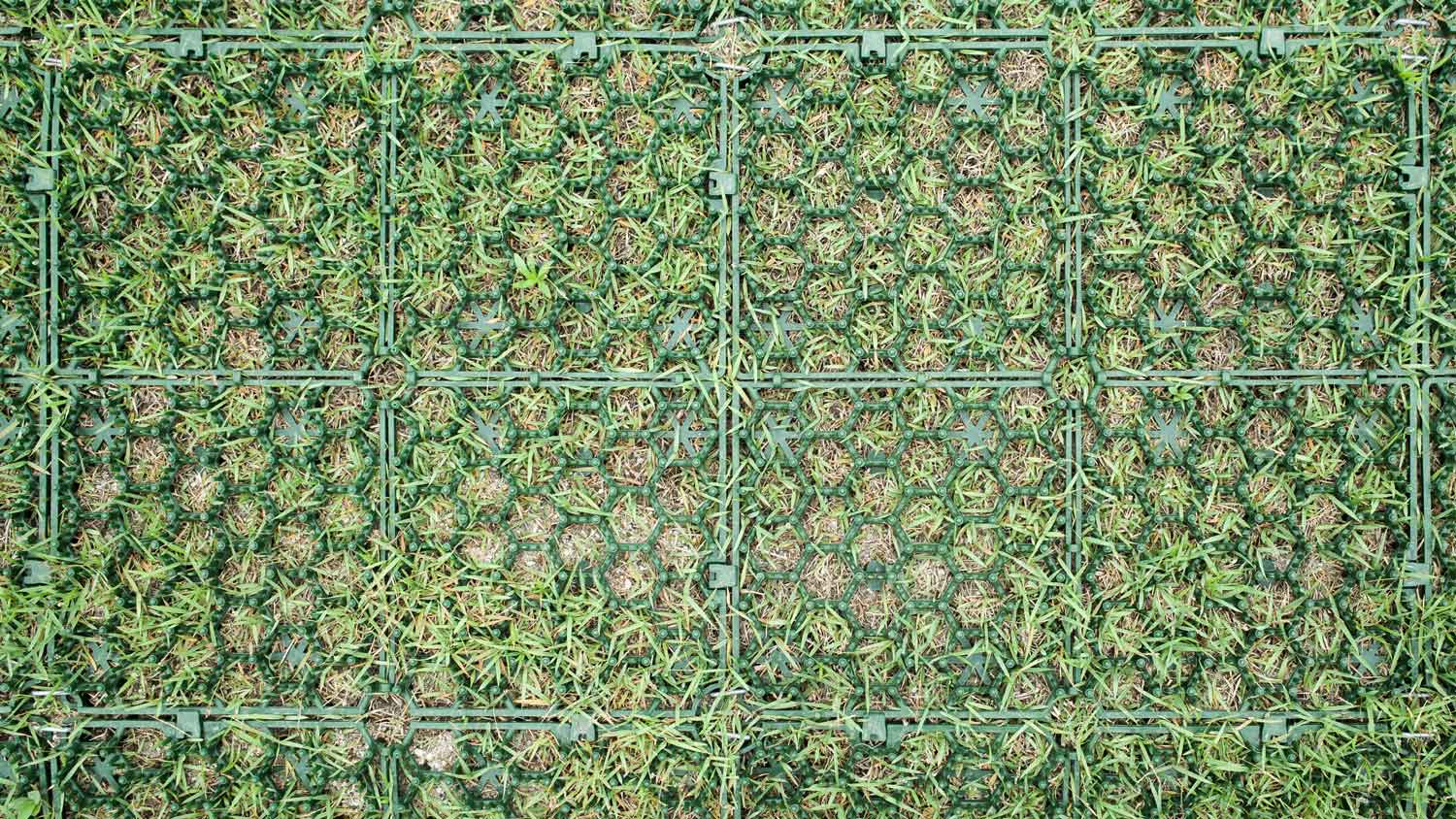
Also called plastic grass pavers, these high-strength plastic grids can be installed to stabilize a grass driveway and keep it from turning to mush when driven on in wet weather. Plastic grass pavers cost between $5 and $10 per square foot. Of course, this is a great option if you want to get away from the usual concrete, asphalt, or paver driveway.
This style of driveway has been around for a long time. Although the cost can be lower compared to the cost to pave a driveway, you’ll want to make sure you have a really good base of at least 12 to 18 inches of crushed stone or gravel. It’s also important that the stone has no fines in it to slow or stop water permeability. The difference with the stone or gravel driveway is that it will require more maintenance. Over time, potholes and tracks will form and create a rough ride even when you’re going driveway speed. Also, dirt gets tracked onto the driveway and clogs up the stone, reducing its ability to drain. Although it works great in some contexts for certain needs, stone or gravel works best as a base under permeable concrete, pavers, or asphalt.
If you’re having a driveway installed, it can be cost-effective to have other smaller work done at the same time. Permeable paving materials can also work well for other applications that may benefit from allowing water to filter down through.
The likelihood of water ending up outside of the hot tub is 100 percent. And if the hot tub is out in the open, it’s going to rain. Unless the concrete has a strong broom finish, a smooth concrete slab can be very slippery when wet. Pervious concrete tends to have more texture, and it will keep puddles from forming on the surface as well. Consider a permeable paver or pervious concrete pad for your hot tub and then you only need to worry about the water inside the tub.
Patios should have a minimum slope of ¼ inch per foot for proper drainage, but a permeable concrete or paver patio can help get rid of surface water more quickly. Allowing water to filter through the patio can be especially helpful for larger areas with a design that would otherwise trap water. Sometimes the grade or location of the patio doesn’t allow for shedding water anywhere but into the house, and allowing water to pass through can solve the problem.
Permeable driveways are extremely helpful in areas with frequent flooding and heavy storms. Also, if you reside in a Sustainable Urban Drainage System (SUDS) mandatory zone, then, you must have a permeable driveway to stay compliant. While the up-front cost of an SUDS-compliant permeable driveway might seem significant, permeable driveways are definitely worth it in the long run.
They can prevent water from pooling and standing, which also extends your driveway’s lifespan as they negate potential water damage to the surface. That’s why permeable driveways tend to last significantly longer than their non-permeable counterparts. For example, a permeable concrete driveway lasts up to 40 years, whereas a traditional concrete driveway tends to last up to 30 years.
Over time it’s inevitable that sand, dirt, and other debris get into the pores and joints of permeable pavers or concrete like it’s a giant filter. Eventually, you’ll have to clean the filter. That usually gets done with a power washer, which can cost between $80 and $220, depending on the size.
You may also need to reseal the driveway after it’s power-washed and dried. Sealing your permeable concrete or paver driveway costs $0.85 to $1 per square foot. Note that sealer can be slippery on its own, and a non-slip additive may need to be mixed into the sealer.
A professional driveway paving contractor is best for installing a permeable driveway due to equipment, skills, and expertise requirements. Not only will you save yourself many hours of hard labor, but the peace of mind and finished product that’s both functional and aesthetically pleasing will be well worth the cost to hire a pro.
However, always shop around and compare your contractors, especially depending on what material you intend to use. Concrete, asphalt, and paver brick driveway installations have different challenges, so it’s key to find a contractor who knows how to work with your desired material. Ask for references and past project photos, and look up the contractor’s online reviews. Make sure the contractor is licensed and properly insured to guarantee the quality of work you will receive.
Looking for other options? Here are two common alternatives to permeable driveways.
Cobblestone driveways are an old-school alternative loved by many. They are pricier, usually sitting at $40 to $75 per square foot. Cobblestone driveways are extremely durable since natural cobblestone can last centuries. They also have a sophisticated elegance that brings people back through time. Many also mix cobblestone with concrete pavers as a more budgeted option.
Asphalt and porous asphalt are other alternatives to traditional permeable driveways, especially for those living in Northern U.S. climates. The pliable material can handle freeze-thaw cycles much more efficiently than concrete or pavers. Asphalt driveways also only cost $3 to $5 per square foot.
Our driveway looks amazing with paverstones done by NY Galaxy General Contracting. The paverstones are expertly set out, and the crew was pleasant and productive. Excellent service!
Professional, courteous and great quality. Would hire the team again.
Flowers Yard Work show up on time to do yard work. I had to run my Mother around so I was not home at the time of work. After returning home my Mother and I noticed weeds in the most exposed area driveway and small area on both sides of driveway. I called Nathan back after a few days and...
We knew our chimney needed repair so, we began getting quotes. Most took a look at the chimney and gave us an estimate to repoint it. Only one actually went up on the roof and, even he only was going to repoint the chimney. We contacted Expert Chimney and asked them to do an inspection and...
Budget was great service. A dead tree fell across my backyard and into my driveway. I called Budget in the afternoon and Bill called back within a couple of hours or less. He came out for a look, gave a very good price and convinced me NOT to do some more expensive items that I though...
From average costs to expert advice, get all the answers you need to get your job done.

Discover the average paver driveway cost, including price ranges, key cost factors, and tips to help you budget for your driveway project.

When designing a driveway, it's crucial to know the cost of your driveway apron—the transitional ramp that connects you to the road. Here's what to know.

The cost to build a road on your property can be high, but the utility is often worth it. Use this cost guide to see how much this project will cost.
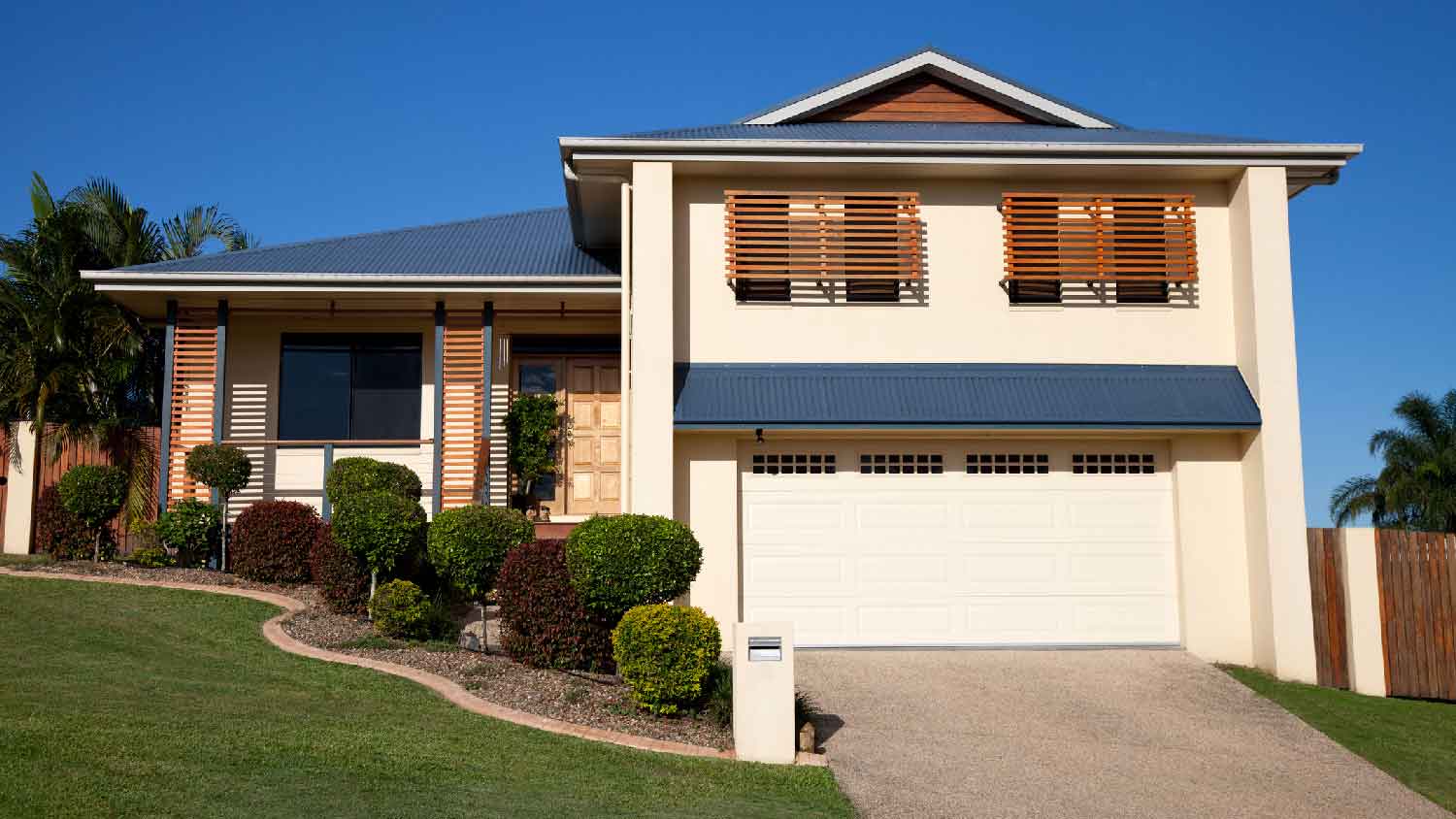
You should not fill potholes in your driveway with mulch. Repair potholes with proper base material and then reseal.
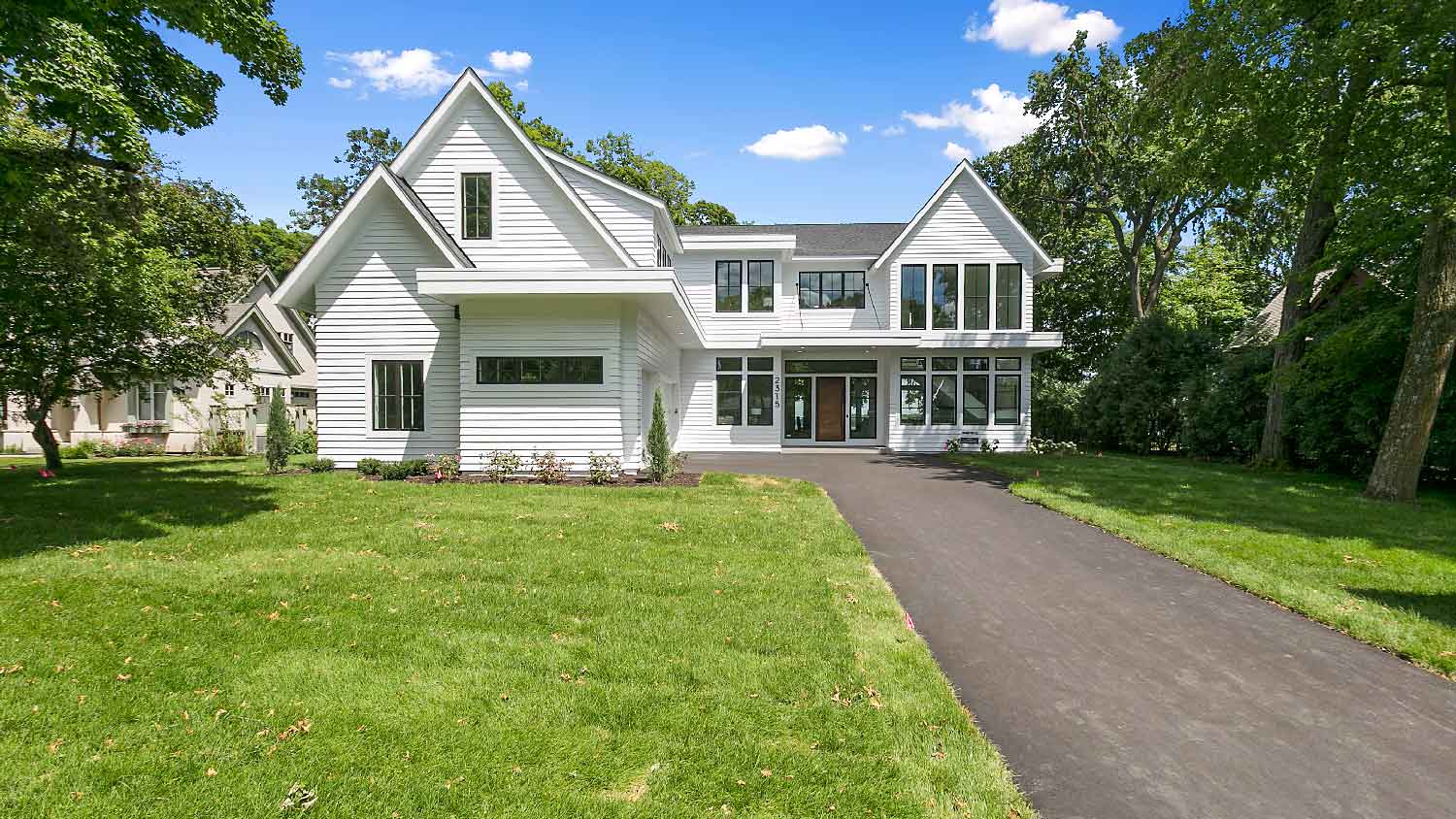
Learn to remove stubborn oil stains from asphalt driveway using simple household items like baking soda, powdered detergent, or floor degreaser.
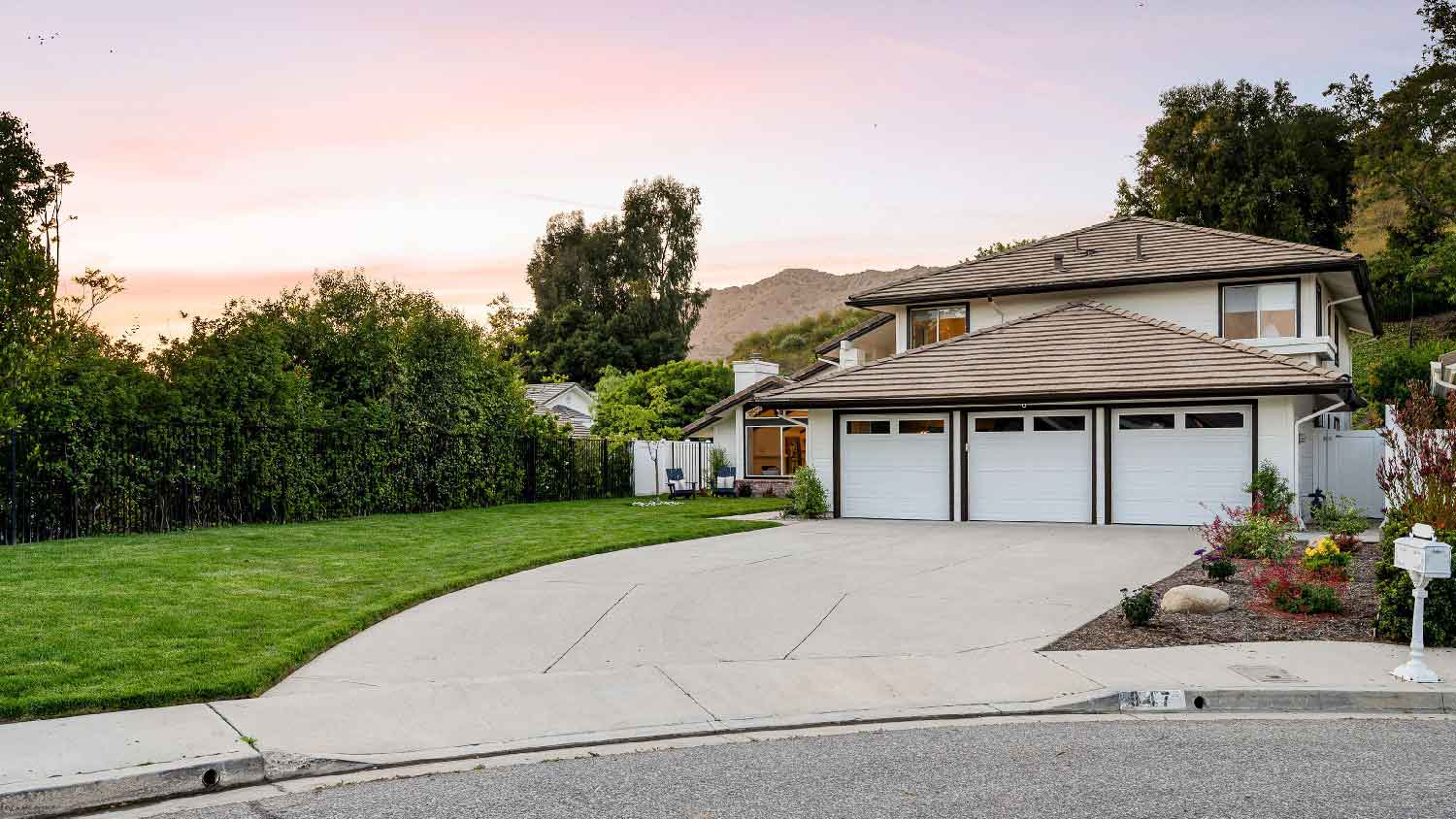
Here are some driveway paving alternatives if you'd like a cheaper, more durable, or more aesthetically pleasing option than a paved concrete driveway.